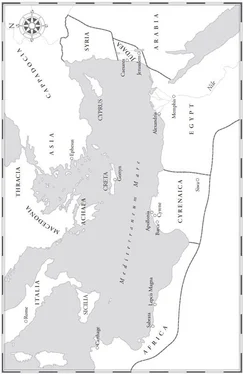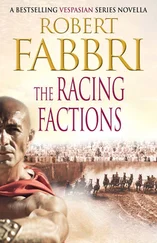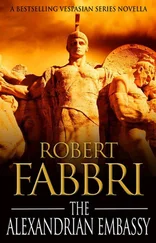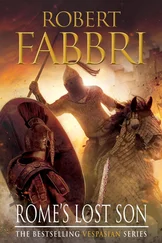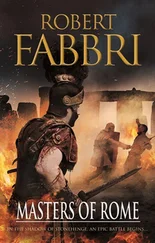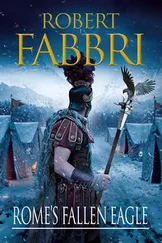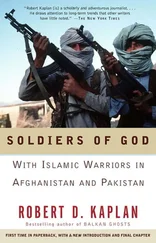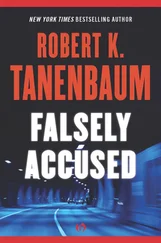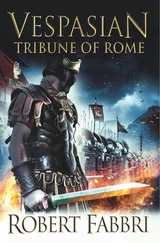Robert Fabbri - False God of Rome
Здесь есть возможность читать онлайн «Robert Fabbri - False God of Rome» весь текст электронной книги совершенно бесплатно (целиком полную версию без сокращений). В некоторых случаях можно слушать аудио, скачать через торрент в формате fb2 и присутствует краткое содержание. Жанр: Исторические приключения, на английском языке. Описание произведения, (предисловие) а так же отзывы посетителей доступны на портале библиотеки ЛибКат.
- Название:False God of Rome
- Автор:
- Жанр:
- Год:неизвестен
- ISBN:нет данных
- Рейтинг книги:3 / 5. Голосов: 1
-
Избранное:Добавить в избранное
- Отзывы:
-
Ваша оценка:
- 60
- 1
- 2
- 3
- 4
- 5
False God of Rome: краткое содержание, описание и аннотация
Предлагаем к чтению аннотацию, описание, краткое содержание или предисловие (зависит от того, что написал сам автор книги «False God of Rome»). Если вы не нашли необходимую информацию о книге — напишите в комментариях, мы постараемся отыскать её.
False God of Rome — читать онлайн бесплатно полную книгу (весь текст) целиком
Ниже представлен текст книги, разбитый по страницам. Система сохранения места последней прочитанной страницы, позволяет с удобством читать онлайн бесплатно книгу «False God of Rome», без необходимости каждый раз заново искать на чём Вы остановились. Поставьте закладку, и сможете в любой момент перейти на страницу, на которой закончили чтение.
Интервал:
Закладка:
Caligula drove his quadriga straight onto his creation and brought it to a halt next to a collection of thirty or so chariots of strange appearance, pulled by pairs of short, sturdy-looking ponies with shaggy coats.
He turned to address his followers. ‘These are replicas of the chariots used by the British tribes, but the ponies are properly trained chariot-ponies imported from Britannia itself. Come, my friends, take a chariot and ride it across the water. When the rumour that we can not only drive their chariots but also ride them over the sea reaches the ears of the savages of Britannia they will fall before me and beg for mercy from your god. Come, my friends, come!’
Vespasian leapt off his horse and joined the headlong rush to get to a chariot, there being more willing drivers than vehicles. Grabbing a set of reins from one of the Celtic-looking slaves in charge of each chariot, he clambered aboard the nearest one. It was a simple design: a rectangular wooden base set on iron-rimmed wheels, two feet in diameter, with a semicircular wicker frame on either side and left open at the front and rear. The ponies were attached to the up-curved central pole by a yoke and controlled by reins running from their bits.
‘Can you drive one of these things?’ Sabinus called, grinning wildly as he leapt onto the chariot next to him.
‘There’s only one way to find out,’ Vespasian shouted back, flicking the reins as the slave jumped in behind him.
‘Kneel, master,’ the slave said as the chariot moved forward, ‘like this. That way the reins are not high.’
Vespasian glanced back to see his companion kneeling low on one knee and immediately copied his position so that the reins flowed along the ponies’ backs. He pulled slightly to the right and the little beasts responded, edging the chariot out into the centre of the road. All around, the other drivers were getting the same lesson from their instructors with varying degrees of success.
Once all the chariots were occupied and in position behind him, Caligula waited no longer and, with his gilded sword raised in the air, set off at a walk towards Puteoli, shimmering in the morning sun and crowned by dun-brown hills climbing up behind it. Those senators who had been unable or unwilling to get a chariot followed on horseback along with the near thousand-strong contingent of Praetorian cavalry. Just under a half-mile further back up the hill the dark mass of the Praetorian infantry, followed by hundreds of carriages, could be seen approaching Baiae.
Vespasian pulled his chariot closer to that of Corbulo. ‘How did you do this, Corbulo? It feels so stable.’
Corbulo glanced over with an expression that looked remarkably close to enjoyment on his normally rigid face. ‘A lot of slaves; I commandeered every healthy male slave within fifty miles. There are more than a few fat merchants who’ve had to go without their massages or a decent fish stew for the last two months.’ He snorted a few times in what Vespasian assumed was a valiant attempt at a laugh.
As they passed the first of the peninsulas, a third of the way across, Caligula increased the pace to a trot. The extra speed meant that Vespasian was more aware of the gentle roll of the bridge as he moved from ship to ship more rapidly and their slight difference in pitch registered quicker. To his right the curve of the causeway leading to the peninsula made a harbour in which were moored leisure boats, too small to be of use in the bridge, but plentiful enough to provide everyone with some aquatic amusement later on.
Behind them the carriages rolled onto the bridge followed by the infantry.
Just over the halfway point, marked by a causeway extending out on either side, Caligula cracked his team into a canter. The exhilaration among the charioteers began to grow as, looking left and right over the wicker sides of their vehicles, they were too low to see the bows of the ships supporting them and could only see water; apart from the masts flicking by they had the sensation that they really were riding over a vast expanse of sea.
A quarter of a mile from the end of the bridge Caligula let his horses loose into an outright gallop; the hardy Celtic ponies followed suit and behind them the cavalry thundered on. The pounding of thousands of hoofs echoed strangely through the hollow hulls of the ships below, amplifying the sound fivefold into a deafening drumming, drowning out the cries and hollers of the charioteers and troopers. Oblivious to all else but the sensation of great speed, the tumult in his ears and the wind in his face blowing his cares from his mind, Vespasian followed Caligula blindly, screaming at the top of his voice.
As the bridge came to an end Caligula did not stop.
On he went; on towards the mass of citizens of Puteoli who had turned out to watch the extravaganza. Brandishing his gilded sword he swept his team into the unbelieving crowd, skittling over and trampling under hoof those too slow to move out of his way. An instant later, unable to pull up short because of the cavalry pressing them from behind, the rest of the chariots hit the fragile wall of unprotected flesh and bone. Screams and wails rent the air, louder even than the drumming of the hoofs still pounding the bridge behind, as the momentum of the stocky ponies, with the weight of their burdens behind them, drove ragged gashes through the throng that only moments earlier had been in a holiday mood.
Vespasian looked in horror as his team ploughed into a family, sending a howling infant flying up into the air as its parents and elder siblings, with shrill curtailed screeches, disappeared beneath his ponies’ hoofs, to reveal another set of faces, petrified with fear, taking their last look at a bewildering world. On either side of him, Sabinus and Corbulo were causing equal carnage, while behind them, the cavalry, also unable to stop suddenly due to the weight of numbers to their rear, fanned out left and right and hurtled into parts of the crowd as yet untouched but trying desperately to escape.
In among the pandemonium of broken limbs and cracked skulls, Vespasian managed to bring his terrified team to a halt; his incredulous slave ran along the pole and jumped down between the necks of the rearing beasts, grabbing their bits and pulling their heads down, stilling them. All along the line a gradual loss of momentum telegraphed itself back through the main body of cavalry still on the bridge and the column slowly came to a halt. The pressure eased on the crowd who were able to stampede towards the bottlenecked streets leading away from the harbour, trampling the weakest underfoot with the abandon of those who just want to live at any cost.
From amidst the tangle of crushed and broken bodies Caligula emerged on foot, leading his team and laughing hysterically. The wheels of his chariot bumped over the dead and the injured, of whom he took no notice. ‘Back to the bridge, my friends; we shall offer a sacrifice to my brother Neptune in thanks for the smooth sea without which this glorious victory would not have been possible.’
Vespasian and Sabinus looked at each other, horror stamped on their faces and shame burning in their hearts. Horror at what they had taken part in and its consequences and shame at being gulled into believing, at first, that it was a magnificent and exciting feat, a prelude to greater things to come, and taking part in it with such fervour.
There was nothing to be said as their slaves, still shaking their heads in disbelief at what they had witnessed, turned their teams, which remained wide-eyed with fright, away from the long pile of mangled bodies and remounted the chariots. All around them on the quayside and back along the bridge the Praetorian cavalry were trying to regroup from the chaotic aftermath of the charge and form into the regimented lines that they so prided themselves on.
Читать дальшеИнтервал:
Закладка:
Похожие книги на «False God of Rome»
Представляем Вашему вниманию похожие книги на «False God of Rome» списком для выбора. Мы отобрали схожую по названию и смыслу литературу в надежде предоставить читателям больше вариантов отыскать новые, интересные, ещё непрочитанные произведения.
Обсуждение, отзывы о книге «False God of Rome» и просто собственные мнения читателей. Оставьте ваши комментарии, напишите, что Вы думаете о произведении, его смысле или главных героях. Укажите что конкретно понравилось, а что нет, и почему Вы так считаете.
